- What Is A Water Fast?
- What Does A 10 Day Water Fast Feel Like?
- How Are Energy Levels Like During A Water Fast?
- How Much Productivity Did I Have During My Water Fast?
- Mostly Lethargic
- Hunger Broke My Brain
- Mindset For Accomplishing A 10 Day Fast
- Fasting And Gut Health
- Talking Shit
- Fasting And Mood
- Fasting And Its Affect On Emotional State
- Fasting And Meditation
- Fasting And Refeeding Syndrome
- Reintroducing Food After My Fast
- Feeling Cold
- Other Anomalies
- After My Fast
- TL;DR
For the last few months I’ve been making attempts to write about the 10 day water fast I did in May 2020, and to no avail. I’m not really sure where to begin or even how to start. I suppose I could touch on what it feels like to do a 10 day water fast, or the 10 lessons I learned during my 10 day water fast, but truth of the matter is – I’m still digesting the experience.
Prior to my 10 day water fast experience, the longest I had gone without food was 72 hours – done with the goal of resetting my relationship with food during the beginning of the COVID lockdown. Before that was the occasional intermittent 16-8 fast, and before that was a 30 hour fast I did as a teenager.
My experience of a 10 day water fast was intense, challenging, and miserable. It was simultaneously euphoric, transformative, introspective, and humbling. At certain times the immediacy of experience was so powerful, it muted out all extraneous channels of thought except for what was happening in the present moment. The raw humanness innate within all of us expressed through the feeling of prolonged hunger was nothing short of mind altering and paradigm shifting.
My beliefs about myself were shattered. For one, hunger is something I’ve always actively tried to avoid. If there’s a vice that I would consider to be a crutch for me, it would be the sensual pleasure of eating. So in a sense, tackling 10 days without eating filled me with fear! Here I am, on the other side of the journey, writing about it.
I’ve read about individuals who have accomplished prolonged fasts, but of course, to me it was all intellectual wonderment that I could use. Either shock value for myself, or some sort of comparison I could make.
“I probably won’t die if I don’t eat for 2 or 3 days… there are some people out there who have survived for weeks without food.”
So why did I do this? I just want to make it clear that this endeavor was done purely for self-experimental purposes. It was also to raise awareness for a homelessness campaign I was involved with. My fast was not an intentional act to lose weight or heal any auto-immune disorders.
I think lived experience is such an oddity to being human: until something is experienced, the extent of appreciation for an experience can only be acknowledged but not fully appreciated.
What Is A Water Fast?
For the entirety of 10 days, I did not consume anything except for water and the occasional pinch of salt under my tongue. The salt was to sate any intense hunger pangs.
There seems to be two schools of thought when it comes to maintaining safety when fasting:
- Take minerals and supplements when fasting
- Don’t take anything, just stick to water and salt if need be
For those in the first group, their general argument goes like this: your body is running dangerously low on certain minerals and essential electrolytes to keep your body functioning when you’re fasting. It’s ideal to maintain those levels so that you avoid muscle cramps, major fatigue, or possible diarrhea (which through my own research, seems to be a function of something that you’re doing on top of the fast, and not a direct causation of fasting itself).
Alternatively, for those in group two, the consensus seems to ride around the idea that consuming anything that may require your digestion to kick start is very dangerous. As you progress longer into your fast, it’s absolutely essential to keep your digestive system asleep. This means that even anything with simple starches or sugars are a no-go.
It goes without saying, but please do your research and consult a physician if you attempt to do prolonged periods of fasting. Every body is different! What I’m about to detail is my own experience. I’m quite in tune with my body, and I am very comfortable with what my limits are.
What Does A 10 Day Water Fast Feel Like?

Hunger comes in waves. There are varying degrees of hunger – and as one might expect, hunger and time does not have a linear relationship. You don’t get hungrier as time passes by. In fact, on the 4th day of my fast, my feelings of hunger were overshadowed by my abundance of energy!
Some mornings were more difficult than others to get out of bed. Every night after the second night was difficult for me to fall asleep no matter how exhausted I was. There was always a gnawing hunger that was humming in the background with bouts of more intense hunger creeping around the corner.
Those bouts of hunger pangs weren’t debilitating except for one night when I was roughly 190 hours into my water fast – I think that night I glimpsed what starvation might feel like: the feeling of hunger wasn’t just my stomach growling and feeling weak. There was this hollowness in the pit of my stomach that seemed to draw all of my body’s energy. It truly was difficult for me to do anything except to just lay there. That level of hunger was so intense, I wasn’t able to think about anything else.
Aside from hunger, my feelings of wakefulness and overall energy would also fluctuate. Interestingly enough, my mood remained quite consistent: determined with an undertone of resiliency. More on my mood later.
How Are Energy Levels Like During A Water Fast?
In a fasted state, I would say my energy levels were consistent. I didn’t have a lot of energy, but it didn’t fluctuate throughout the day. As the days crept by, I only did what I had the capability to do. I didn’t want to do anything more. There were no wasted movements – not because I was being conscious of limiting the potential of wasting energy, but because I had just enough energy to perform exactly what I needed to get done.
Due to my energy levels being fairly low, I would break up the experience of my fast into three states of being: states of productivity, states of lethargy, and states of hedonistic desire.
How Much Productivity Did I Have During My Water Fast?
Productivity can vary. As I mentioned earlier, on my fourth day of fasting I woke up with an abundance of energy. In fact, the energy levels lasted all day. Everybody’s anatomy differs – I’ve read different accounts where some people could group together their experience by blocks of days. That is to say, between days 1-3 I felt this way, 4-6 like this, and so forth.
I didn’t have that. There was no consistent pattern to my energy levels. I wasn’t able to determine exactly how I was going to feel the next day when I woke up.
What I could count on was that I would always feel better in the immediate moments of waking up relative to how I felt during the times I would go to bed.
Overall, I was able to accomplish tasks that didn’t demand too much physical effort. Working out was mostly out of the question. However, I was able to manage everyday chores like sweeping, mopping the floor, and taking out the garbage. Slow, methodical work such as doing my taxes (which I did in a 2 hour sitting during day 8) and journaling was also within the realm of possibility.
What I would say is, things can get accomplished for sure – you will just be doing it a little bit slower. But then again, because I didn’t have the energy to fantasize about other things and create distractions for myself, tasks I would set my mind to would be done without wasted mental energy.
Mostly Lethargic And I Was Okay With It
I found myself spending a lot more time laying around to conserve energy. Standing up was an entire ordeal by itself.
It was such a weird experience to consciously break down the act of getting into an upright position.
In the morning when I would wake up, I would take a few minutes or so to slowly get up. In the process of it, I would move to the edge of my bed, slowly sit up, and spend a couple of minutes acclimating my body into a seated position. After I gathered myself, I would stand up, and have a glass of water.
Standing was difficult, because if I were to stand up too fast, I would immediately go vasovagal. My vision would blur and I would start to black out. In those instances, I’d make sure I had something to lean against. I took extra precautions by taking my time to do so – I really didn’t want to faint from over exertion (and thank goodness I didn’t).
Oh, and here’s something that was super difficult as well that I wouldn’t normally think about: keeping my head raised while sitting was hard. The ol’ noggin is heavy, and keeping it upright is effort! It definitely made me think about some things I’ve never given a second thought about.
So the next time you see somebody who’s homeless sitting on the street and has their head hanging low, maybe consider that they’re so fatigued they are having trouble keeping their head up.
Hunger Broke My Brain And Left It In A State Of Hedonistic Desire
The amount of time watching food related videos between day 6-8 probably amounted to a quarter of my waking hours.
I was able to accomplish a few productive things during the day. Send some emails out, update people supporting my campaign for homelessness, do my taxes. Fairly basic stuff. But for the most part, if I wasn’t laying around listening to podcasts or music, I was watching food related content on YouTube. Thank you Binging With Babish and Village Cooking Channel.
Oh yeah, I also made a list of all of the foods I wanted to eat when I finished my fast – it was a long list. I’m not even sure how to put this into words, because it was such a transient feeling, but it was powerful. The best way I can describe it is, for an instant I craved every single food I had in my entire life, all at once.
In all seriousness though, I do believe that the way I chose to spend my time watching food related content has to do with some sort of primal instinct. When we see food, often times it means we are about to eat. The irony: my brain wanted to eat, my body didn’t actually feel like eating. Refeeding syndrome is a thing, and I’ll get into that later.
Mindset For Accomplishing A 10 Day Fast
Life isn’t a race. It’s more important to move at your own pace. Fasting for 10 days really made me appreciate this mentally and physically.
When I had reached hour 72 of my 240 hour water fast, there was something incredible that I had to acknowledge to myself. Every second that passes by from here on out would be new territory. In a sense I was constantly breaking my own “personal best.” Just like starting something new in life, any progress is a victory.
Small victories taken by itself doesn’t amount to very much, but it keeps the momentum going. As with any challenge in life, it is the momentum of the progress you make that keeps you moving closer towards your goals.
David Goggins uses a really great example in his book Can’t Hurt Me. He speaks of the necessity of small sparks or small accomplishments to fuel the big ones. “A rocket ship does not fire without a small spark. Likewise, a blazing forest fire is started from kindling.”
If I were to have done a count down, I don’t think I would have been able to make 240 hours without any food. Can you imagine looking at the clock every time to check on your progress?
“Oh look! there’s 210 hours left… there’s 197 hours 35 minutes and 20 seconds left… there’s 196 hours 22 minutes and 37 seconds left.”
That would have driven me absolutely mad.
Chronological time is set to move at its own pace. There is no rushing it. Acknowledging this let me accept that there is no way to rush this challenge – all I could do was let time do its thing while I did my own thing. It was important that I reframed my mindset to move towards the finish line with appreciation.
Extrapolating from this experience, I now know to trust myself if I say I’ll complete something. In the past, I had anxiety when a task I would start wasn’t completed immediately. Perhaps it has something to do with the desire for instant gratification. All I need to do is to remind myself that things will get done at my own pace – it’s never a race.
Physiological Facts And Other Health Things About Fasting
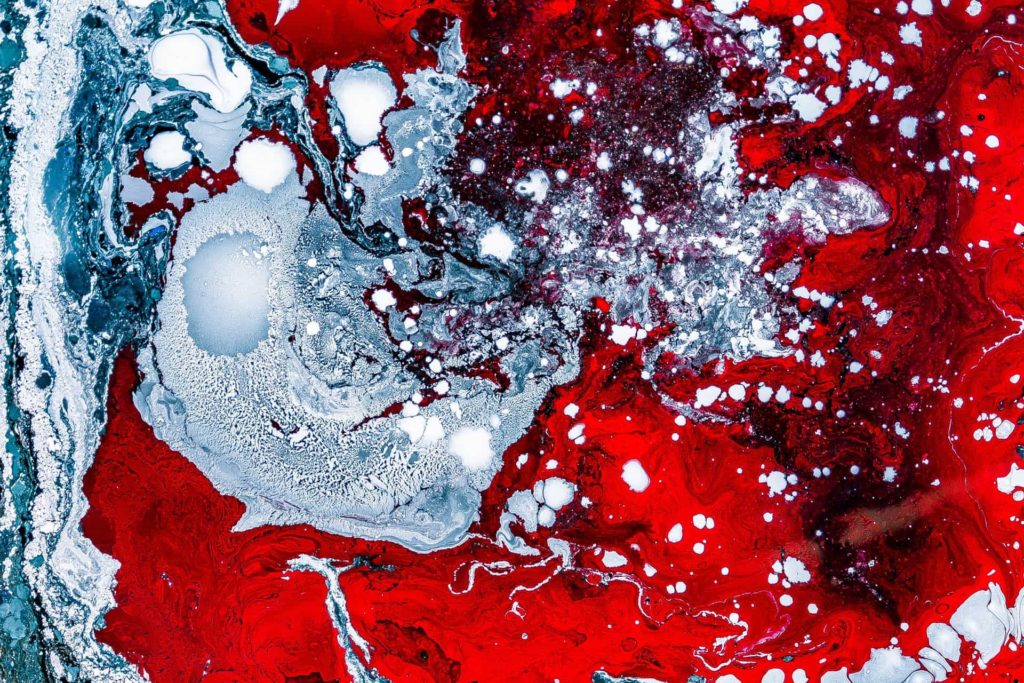
I’ll speak only about the observed health benefits I experienced during and after my fast. There’s a myriad of benefits that come with fasting. If adopted on a more mainstream level, I believe it could radically change the landscape of our health, relationship with our body, and cultural understanding of what food is.
Lots was going on in my body! What I was really looking forward to before I had started my 10 day water fast, was the state my body would be in after I completed it.
Fasting And Gut Health
Being in a prolonged fasted state gave my cells time to repair themselves. My intestinal tract also shut down in response to being in a fasted state.
Your intestinal tract is a long series of smooth muscle that contracts in a wave like motion. This wave like motion is known as peristalsis and it aids in the propulsion of the food down the tract. When there is no stimulus, peristalsis slows down.
Two other note worthy gut enhancing factors that were happening: fasting changes the environment for your gut microbiome and boosts our body’s response to cellular recycling, which is important for renewing body tissue!
We have a symbiotic relationship with the microbiota that lives in our gut. More and more studies are showing that the constitution of the bacteria that lives in our gut have a correlated or direct impact on our physical and mental health. It plays a role on a list of things including:
- Immune system homeostasis and function
- Psychiatric disorders such as depression
- Eye health
- Auto-immune diseases
- Decreasing risk of colorectal cancer
- Improve insulin sensitivity
There’s also a lot of research happening within the realm of how varying our eating patterns can affect our gut microbiome. One study found a correlation with water-fasting having the ability to challenge our gut’s microbiome to become more resilient. The same study also found that prolonged water fasting can decrease a type of bacteria known as fusobacterium which have a causal relationship with oral and skin disease among other sicknesses. Other studies have found that fasting can affect our gut microbiome to increase in healthy gut bacteria.
It’s estimated that our gut contains more bacteria than there are stars in our observable universe. In a way, we really are what we eat, or don’t eat. I’ll let you make your own correlations here on how fasting can affect our body for the better.
Talking Shit
A major benefit of fasting that really had me intrigued is the capability for our body to heal our own gut. I definitely think that some form of intestinal rejuvenation occurred. After completing my fast, I noticed a characteristic change in the quality of my stool.
Prior to fasting, toilet time would leave me wiping multiple times before I was clean. After fasting, and even up to now, it’s a one wipe and done situation. I spoke to a Registered Dietitian about this and learned that this is often times a sign of fat malabsorption.
For whatever reason, all of the research I did on prolonged fasts didn’t speak about this as an outcome, so I’ll break the silence: I didn’t poop at all during my 10 days of fasting (until I did…lol). Most probably, it’s due to the fact that peristalsis had ceased in response to the fact that no solid foods were going into my system.
I’ll also say this: going to the toilet for the first time after a prolonged fast is arguably more satisfying than having your first taste of food. Dropping satisfaction aside, the feeling of knowing that my intestines had the opportunity to clean itself made me feel really good. I spoke with a Hydrotherapist once and learned that one colonic session is equivalent to three days worth of fasting. 10 days of fasting left me pristine and clean!
Fasting And Mood
Believe it or not, I wasn’t hangry at all. Yes, irritability and hunger is well documented but there’s a caveat to it. Often, negative emotions are associated with hunger, in part, due the unpleasantness hunger brings. But it is also the environment that you’re surrounded in that frames your mind to interpret certain stimuli in a negative way. In psychology, this is known as priming.
Mood and fasting has all of the same components that would provoke very similar emotions, but it didn’t. I would attribute that to my state of mind as well as mindset.
During the first two days, as my body was acclimating towards a fasted state, there were minor swings in my mood: from minor irritability because of discomfort (I was cold, hungry, and had a minor headache), to partial despondency – as documented from my thoughts written down:
“It’s interesting how a full stomach can affect my level of confidence. Thoughts that lead me to question my worthiness that are usually filtered out have been flooding my mind since I started this fast. Is there a correlation between my self-confidence and my satiety level?”
Day 1 of my water fast
But for the remainder of my fasting experience, I just didn’t have the energy to feel anything else that wasn’t beneficial to my conservation of energy.
What I mean by that is: anything that took an excess of mental energy to sustain, I had no interest it.
More importantly, it didn’t even feel like a choice. It was as if the primal parts of my brain had been sparked up, and anything that didn’t contribute to my survival was abandoned.
Don’t Kill My Vibe – Fasting And Its Affect On Emotional State
It’s well known that psychosomatic manifestations of mental illnesses such as depression can lead to states of fatigue. I have this theory (definitely unoriginal and heavily influenced by the work of Dr. David R. Hawkins) that our states of emotions are intrinsically tied to our energy levels.
In Hawkins’ book Letting Go, he writes about something that we have all intuitively experienced. Negative emotions are in the state of what he classifies as a lower frequency – for the most part, being around negativity leaves us feeling drained.
Also, depressive states as well as states of anxiety and uncertainty have a quality of intensity to them that something like contentedness or serenity doesn’t.
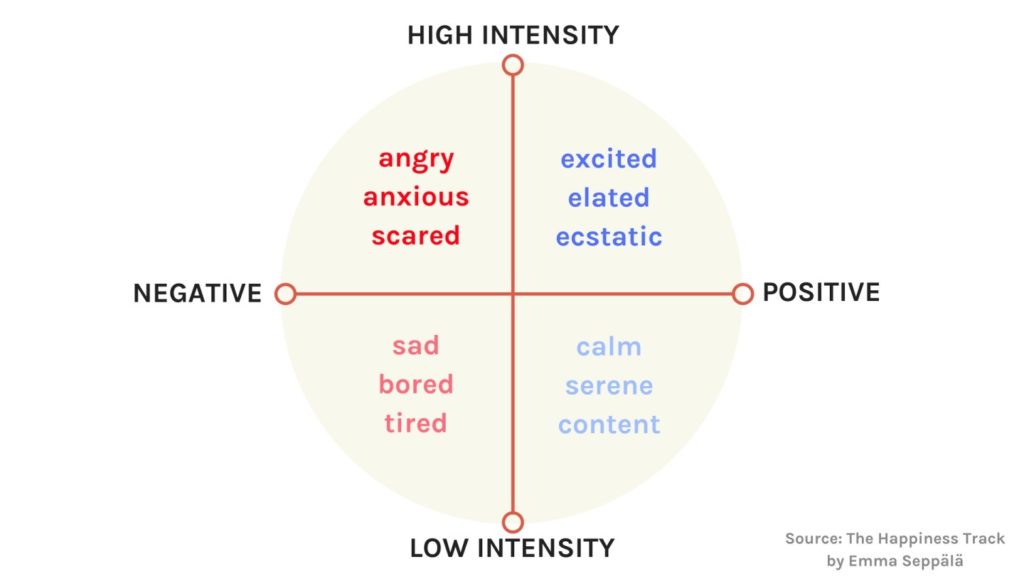
This is why I’m guessing that there was absolutely no room for my headspace to harbour any complex thoughts of negativity. It’s an absolute energy drain. As stated earlier, for the most part, my mood was consistently determined with an undertone of resiliency. On top of that, most of my day felt quite serene.
I’m curious to know how regularly fasting can alter the neural networks of our brain for the better. Research done on fasting and mood disorders have shown a correlation to boosts in vigilance and feeling of well-being.
Fasting And Meditation
It’s a little abstract to distill when it comes to meditating in a fasted state. Every individual’s meditation practice is personal to themselves. Time spent exploring meditative states or engaging in activities that induce flow states also affect your experience with meditation.
It was difficult for me to do seated meditation unless my back was propped up against a wall – staying upright took a lot of effort as the days progressed. There was one afternoon I was soaking up the sun’s rays while doing some deep breathing, and it felt fantastic!
As I said earlier, most of what I could do was lay down, so I spent most of my time doing diaphragmatic breathing. It felt as if my mind had an edge to get into meditative states. My emotions and my mood were very stable, so I took complete advantage of that.
The biggest takeaway I can share from being in a fasted state and practising breath guided meditation is this: the mind is a lot less busy (read fasting and mood). As a result of a less fettered mind, my meditations would definitely go deeper than usual.
Fasting And Refeeding Syndrome
During WWII, there were documented cases of life threatening reactions to the reintroduction of food to survivors who were suffering from prolonged periods of starvation.
It was quite the head scratcher for those working in the infirmary. Surely if you’re suffering from malnutrition, the cure is to eat as much as you can!
Quite the contrary. Overindulgence of food after a prolonged state of not eating can actually cause death. That was what was happening to the survivors: under a malnourished state, most survivors ate too much too soon. What happened afterwards were a series of different symptoms including:
- Fatigue
- Weakness
- Confusion
- Seizures
- Edema
- Irregular Heartbeat
- Cardiac Arrest
- Coma
- High Blood Pressure
This was later coined as refeeding syndrome.
I had done some research into what one should be aware of when doing prolonged fasts. It became very obvious that the thing I should look out for was the dangers of eating again post-fast. At the time it didn’t make very much sense to me – I had reasoned it as a shock to the system because the intestinal tract had shut down for a long period of time. I wasn’t entirely wrong, but it’s a lot more nuanced than that.
So What Is Refeeding Syndrome?
To understand this we need to acknowledge our body’s use of phosphorus. Aside from being building blocks for our bones and teeth, phosphorus plays a big role in intracellular function. That is the functioning of a cell within itself (as opposed to between other cells).
Our cells function through the usage of ATP (adenosine triphosphate). You can think of ATP as the currency of cells; in order for a cell to power itself, it utilizes sugars that we consume through food, and transforms said sugar into ATP through a reaction known as the Citric acid cycle, or Krebs cycle (Hurrah grade 11 biology!).
As you might have noticed, the P in ATP stands for phosphate, which is a form of phosphorus.
In a fasted state, our body has shifted over from the usage of carbohydrates for energy (glycolysis) and have started breaking down fats and proteins in order to produce energy. This is known as the infamous ketosis, and also utilizes lots of electrolytes including phosphate.
A sudden reintroduction of carbohydrates causes a huge spike in insulin. This promotes the cellular uptake of phosphate. There is also the sudden shift from ketosis back to the process of glycolysis. This also impacts any free floating (and already low levels) of phosphate in our blood to be taken up by cells.
The chain reaction here: phosphates needed to provide for cellular function unrelated to digestions, in lets say the heart or major muscle groups won’t have enough to perform its function. Thus, leading to irregular heartbeats, weakness in muscles, or cardiac arrest.
All that said, eating too much too soon will shock the system by messing up the electrolyte balance in our blood and cells. Sometimes the damage can be irreversible.
How Did I Reintroduce Food After My Fast?
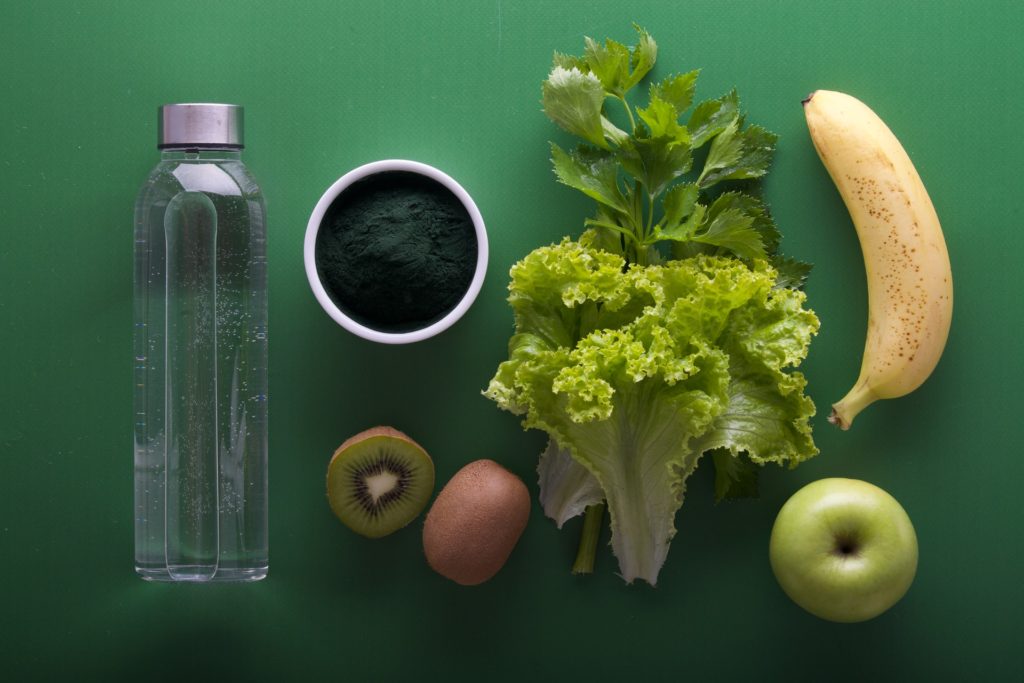
The first 10-16 hours of my refeed stage was all liquid based foodstuffs.
I kick started the refeed cycle with cold pressed juice. The taste was amazing – having sugar for the first time after 10 days of not eating, and 6.5 days of keto-breath: it was the most sincerest form of appreciation.
The effects of energy from sugars were quickly noticeable. Within 20 minutes of eating, my body started to warm up again, and I could move from a seated to standing position much faster.
On the first night of my refeed cycle, I had a bowl of blended spinach, kale, and chickpea soup with a bone broth base.
I followed up the second day of my refeed cycle with more soup, and had my first solid food for the first time: some nuts (almonds, cashews, Brazil nuts, and walnuts).
For the most part, I would describe the first 50-60 hours after my fast as cautious eating. I ate foods that were easy to digest: boiled eggs, sardines, fruits, nuts, steamed vegetables, steamed chicken breast, soup, and fruit smoothies.
My appetite wasn’t huge, so I wasn’t eating very large meals either. I also stayed away from dairy and alcohol during this time (I’m moderately lactose intolerant).
I wasn’t eating full meals until the third day – and even then, it would be one full meal a day plus light snacking throughout.
Feeling Cold
I was cold all of the time. When the body expends energy, heat is produced. The expenditure of energy also includes the break down of the most basic molecule humans rely on: glucose.
To split up glucose (known as glycolysis) to be usable fuel for our body the sugar molecule undergoes something known as cellular respiration. During the process of cellular respiration heat energy is released. In addition to the heat energy released during cellular respiration, there is also heat energy released when we expend energy through the process of digestion.
According to Precision Nutrition, the digestion process itself can on average up to 10% of our daily energy expenditure. This number rises depending on what it is we’re digesting.
All that said, in a fasted state minimal energy is being utilized and nothing is being digested. Hence why I was cold all of the time.
My extremities in particular were the coldest, and my core temperature definitely felt like it dipped a little below average. Feeling cold is never a comfortable state to endure, but there have been several studies linking lowered body temperatures due to calorie restriction as an outcome for longer lifespan.
Other Anomalies: What Ketosis Tastes Like, White Coating On Tongue, Detox and Weight Loss
Ketosis: From day 4 and onwards, there was a constant taste of ketones in my mouth. It wasn’t pleasant. A constant taste of fermented sweetness that was slightly metallic – thanks ketosis. I eventually had to get a couple bottles of carbonated water to distract myself from the taste.
Detox: In some personal fasting journals I read online, some have spoken about a white coating on their tongue. I can attest that this is certainly the case. Some sources I found on YouTube mentioned the white coating on tongue is a sign of your GI tract being shut down.
Alternatively, the white coating is also an agreed upon phenomena in the Ayurvedic/holistic medicine world that it is a sign that detoxification is happening.
Speaking of which, another sign that detoxification is happening is if you get headaches during the first 24-72 hours of your fast. I had minor headaches – but they didn’t last too long.
Weight: I lost a lot of weight! On average, I lost about a pound a day. In totality, I lost close to 14lbs or 7 kilos over the span of 240 hours.
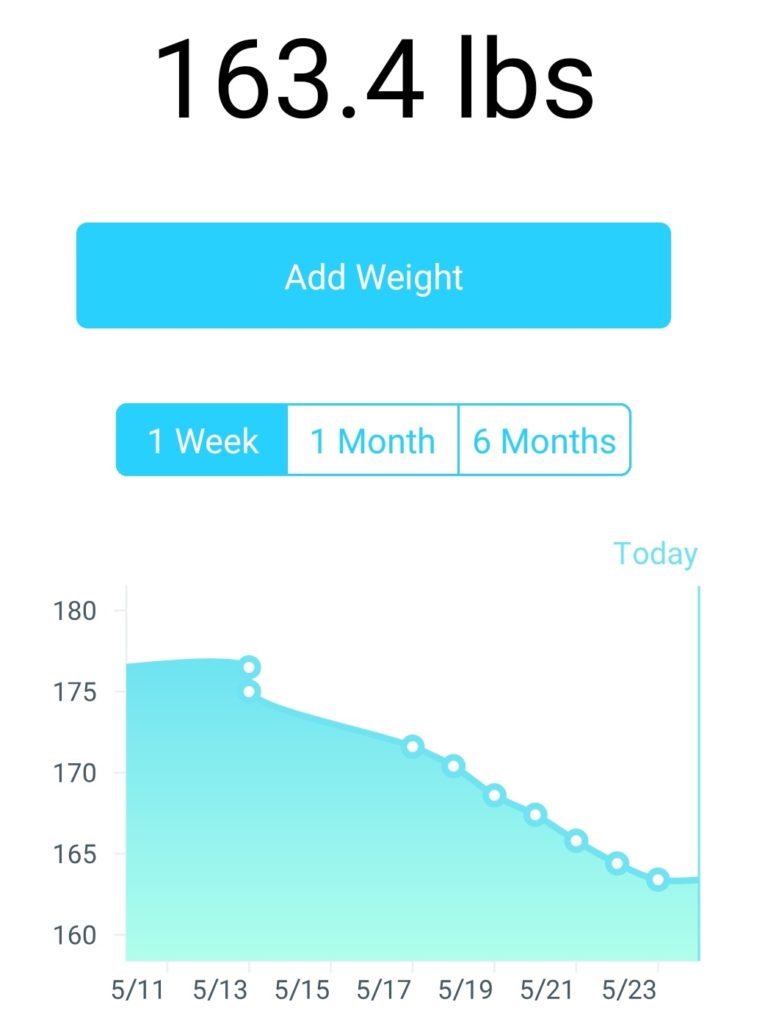
There was a very interesting correlation I noticed as I was taking my weight and tracking my energy levels. Between day 5-6 and day 7-8 I lost close to 1.5lbs. Those two days were the roughest days I experienced during my fast. My energy levels were so low – it made functioning tough.
Skin: My skin also cleared up a lot during my fast. General acne and blackheads had disappeared for the entirety of my fast and for the following two weeks. It wasn’t until I started eating fried foods and some sugary foods that acne started coming back.
How Did I Feel After My 10 Day Fast?
I’d have to say that I seemingly did everything correctly. During my fast, I didn’t experience any health issues that was disconcerting in any way. There weren’t any health ramifications after my fast either. In fact, my overall health and energy levels improved.
My mind was sharper. My mood was better. Energy levels were stable and never crashed. In fact, my energy levels were so high for the first two weeks after I started eating again. I was so productive, it felt incredible!
I felt more motivated to do things in life. I’d definitely attribute that to the quality of challenge that a 10 day water fast posed. Accomplishing the challenge left me feeling like a winner. I glimpsed having the mental space to say to myself that I can do anything I put my mind to, and believe it!
Overall, I just felt like a better human. My fast felt like a hard reset for my body, so it gave me an incentive to treat it well. I did that for about a month, and slowly allowed myself to get back into some old habits.
Finals Thoughts About Fasting
I’m interested in experimenting with medium length fasts in the future. Although I would consider doing a 10 day fast again in the future – it would be a lot more practical to try a shorter period, such as 5 days. The health benefits that I’m interested in exploring seem to maximize around the 5 day benchmark:
- Fat burning
- Cellular regeneration
- Promotion of growth hormone secretion (up to 5x)
- Improving insulin sensitivity
- Improving immune functioning
Although I’m speaking anecdotally, it seems to me that any more than 5 days, and it becomes a lot more of a mental challenge.
I do recognize that everybody’s physiology and anatomy is different, and they may benefit from longer or shorter fasts. Due to some incredibly challenging auto-immune disorders, some people do hard resets for their body by fasting for lengthy periods of time.
There is also an established holistic practice based in Germany that centres their therapeutic approach to total body wellness around fasting.
My experience has completely altered my understanding about the human body. We have mechanisms that have been hardwired into our bodies from thousands of years of evolution that we are not fully appreciating in modern society. The verdict is in: fasting is a powerful tool that affects our body, mind, and spirit. It transformed my mindset, and showed me that we are capable of so much more than we think we are.
TL;DR
- Fasting like anything difficult allowed me to appreciate life way more.
- You don’t get hungrier as the days go by. Hunger comes in waves.
- I had a mental boost from the feeling of hitting reset for my gut.
- Energy levels were stable: not high, not low, generally moderate to low
- Productivity levels were good for non-physical tasks.
- I didn’t have any energy to have extraneous thoughts, my emotions were stable, my mood was stable.
- There are a lot of health benefits from fasting, mentally and physically.
- When eating again, you should be careful of refeeding syndrome.
- I didn’t eat solid food until the second day, and didn’t start having full meals until the third day.
- I was cold all of the time.
- I was light headed often – especially if I stood up too fast.
- I only had a headache during the first 24 hours.
- I lost close to 14lbs.
- Your tongue gets a permanent white coating after 3-4 days of fasting.
- Keto-breath isn’t pleasant and the taste of it is something akin to minerally fermented sweetness.
- Was it difficult? Sure. Would I do it again? Yes, I would do it again – maybe in a less extreme way; 5 days would suffice.
References
- Beli. E., et al. (2018). Restructuring of the Gut Microbiome by Intermittent Fasting Prevents Retinopathy and Prolongs Survival in db/db Mice
- Brennan, C.A., Garrett, W.S. (2016). Gut Microbiota, Inflammation, and Colorectal Cancer.
- Cheung, S., et al. (2019). Systematic Review of Gut Microbiota and Major Depression.
- He, Y., et al. (2019). Fasting challenges human gut microbiome resilience and reduces Fusobacterium.
- Hsing, J.W., Wu, E. (2012). The role of gut microbiota in immune homeostasis and autoimmunity.
- Jarreau, P. (2020, May 8). The 5 Stages of Intermittent Fasting.
- Luca, F.D., Shoenfeld, Y. (2019). The microbiome in autoimmune diseases.
- Ozkul, C., Yalinay, M., & Karakan, T. (2019). Islamic fasting leads to an increased abundance of Akkermansia muciniphila and Bacteroides fragilis group: A preliminary study on intermittent fasting.
- Schreiner, A., Kao J., & Young V. (2015). The gut microbiome in health and disease.
- Scripps Research Institute. (2020, September 8). Linking calorie restriction, body temperature and healthspan. ScienceDaily. Retrieved September 22, 2020
- Spence, C., et al. (2016). Eating with our eyes: From visual hunger to digital satiation.
- Sutton, E.F., et al. (2018). Early Time-Restricted Feeding Improves Insulin Sensitivity, Blood Pressure, and Oxidative Stress Even without Weight Loss in Men with Prediabetes
- Terlevich, A., et al. (2003). Refeeding Syndrome: effective and safe treatment with Phosphate Polyfusor.

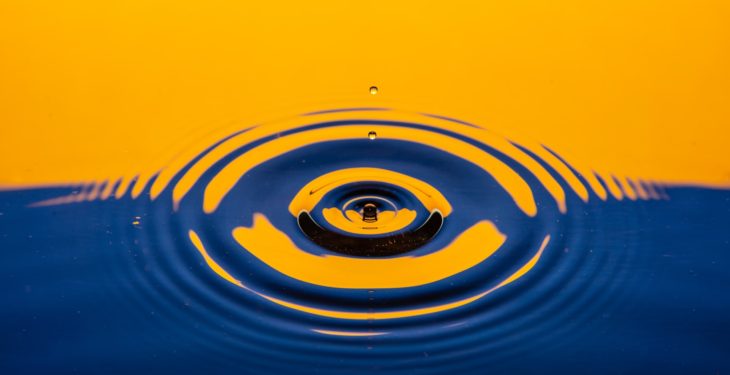
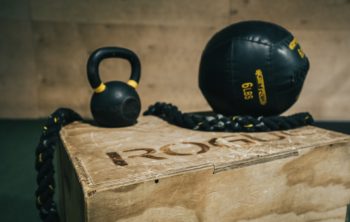
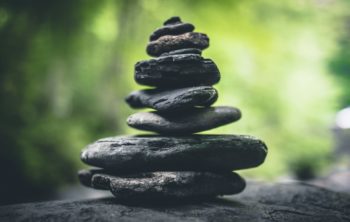
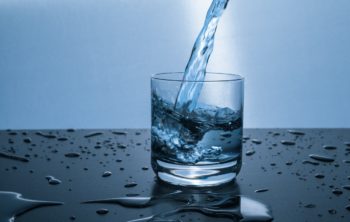

Hey Calvin, I just wanted to say how well this 10 days water fasting article is done.
I did my first 10 days water fasting last December and I am right now doing it for the second time. I intend to do it twice in a year.
I subscribe practically everything what you have described from your own experience. Plus, such a well explained process here in the article not only with your own experience, but also with proper research. Really good.
Thank you
I will leave my website here, which has been online from 2015 until last January. Now I am rebuilding it again, the 3rd version of it.
Thank you so much for reading! It truly was a transformative experience. Glad you were able to relate, and more power to you for doing a long fast twice a year! What a great way to recycle your old cells 🙂
Great read! I’m 24 hours into my fast and this has given me the reassurance I needed.
Glad to hear that Kevin! Hope your fast went well!
Some of the symptoms you experienced early on were caused by sugar withdrawal.
Your post has been most relatable to what I am currently experiencing this time round doing an extended fast! I’m on day 8 and boy has it been both the best thing ever and an I don’t want to leave bed kinda rollercoaster. Comparing it to my fast last year, (8 days, aiming for 10 now), I’ve begun to suspect pre fast dietary and physical activity patterns may have a bigger role to play than advised. I was eating super clean (Im vegetarian, I eat low carb, moderate protein-no keto) and training with weights and also doing yoga and somehow that seems to have helped me maximize the benefits of my fast. In this post-covid world, its back to sedentary office clock-ins and outs and even if I don’t eat the worst diet, it has some croissants, cookies and such in the mix so it is not as precise and I legit feel the non tracked carb/sugar intake or callous eating has messed this up for me. Even the fact that I was building muscle for 6 months prior to the fast may have had some impact? I have no science to back this up. Maybe analysing your dietary habits pre fast might give you similar insights though. Thanks for the engaging read.
Thank you KV! I feel fairly removed from my fasting experience now, since then I’ve observed a few 60 hour fasts, and practiced intermittent fasting. I’d like to know your thoughts on this: since doing such a long fast, I feel as if I have the ability to tell my body that I will be requiring it to function on less on command (all it takes is a little mental preparation).
Just like you, I have also found myself to indulge in croissants and cookies from time to time. I’m sure some of it has to do with the floating anxiety that surrounds us these days in the post-covid world. I tend to crave sugar when I’m stressed out.
Day 6 into 7 day fast and it was unbelievable how similar of an experience I’ve had. The realizations you had were very similar to my own, though yours were much more articulated. I also watched tons of cooking shows haha. Anyway, thanks for sharing this helped me a lot to push forward. One of my favorite reads from my fasting research.
Thank you so much for taking your time to read and sharing your experience Eli! Glad my experience resonated with you.
I am on Day 9 of my 10 day fast and honestly this is so relatable. I do not know about the waxy coating cause I dint even care to notice I am so much in my world that nothing else matters, so happy that this is happening. I did have major dizziness today this morning on the 9th day.
I am hoping to extend my refeed as long as possible with inly juices for 1-5 days and soups 5-10 days followed by vegetables and starting proper diet by day 15-16 of the refeeding phase.
More power, love and healing to all who made it through and also to those who didnt 🙂
Sounds to me like a fantastic idea to extend the refeed cycle! That would take a phenomenal amount of will for majority of people (let alone doing a 10 day fast, even 5) – but I’m here for it!! Enjoy your new mind and body!
Hello Calvin,
I did my first experiment in prolonged fasting (72 hrs+) at the end of February this year, when I water fasted for 7 days. I was referring to your guide the entire time, and especially at the end when it came down to resuming food intake to avoid refeeding syndrome. I found that your guide was a great help for me, both in terms of moral support and practical indications.
I actually ended up sleeping a lot during my fast (I think I was sleeping about twice a day, totaling about 16 hours on some days). I think it helped me reset my sleep schedule by the end and start getting up in the morning again.
I noticed that the “true hunger”/starvation sensation you describe, where it’s almost painful, happened to me around day 6-7 (but my food intake had already been low due to a recent illness for a few days before I started). I was pretty excited about getting to feel it, surprisingly, since I was aware I’d never experienced it before. I can relate to the curiosity about entering uncharted territory with every new day.
The most stark health benefit that I believe I observed by the end was a marked improvement in my skin quality. My face usually gets oily very quickly and easily so I have to wash it with soap over the course of the day. At the end of the week there was none of that, and my hands felt very soft and smooth. I don’t know if it was due to something else or if I was just imagining it.
In any case, I’m currently nearing my third day into a 10-day fast (I’ve decided to do them regularly 2-4 times a year with gradually increasing length), so I’m coming back to this page to revise the info.
Thanks a lot!
PS. It’s the start of grilling season around here where I live, and the smells are unbearably tantalising… I don’t think I’ll fall for it though
This week marks 2 years since I’ve done this fast, and I’m taken aback by the response I still get for it! Thank you so much for sharing your thoughts and experience with me. The starvation feeling is a wild experience, isn’t it? I remember my skin was also glowing post fast – so I definitely don’t think you were imagining it 😉 Kudos to you for deciding to regularly fast, it truly is an inexpensive and radical way of taking control of your physical and mental health!
Thanks Calvin. This was very informative, both your shared personal experiences during the 10 day fast and your body physiology explanations. I’m on day 4 of a 5 day fast. I plan a 10 day fast next, after a time of renourishing.
Thanks for reading!
Awesome job with the write-up. Well said and researched. I have done several 3, 7 and 10 day fasts and everything you said hits the nail on the head. As others have said in previous comments the fasting experience is much more enjoyable if you enter ketosis a couple days prior to starting the fast and are careful with the last meal prior to starting. At this point, I find fasting pretty easy… much easier than the re-feeding and slow process back to a normal diet. It is very easy to undo all the hard work and rebound to the start weight if you don’t get that part right
How much weight/far did you lose during this fast?